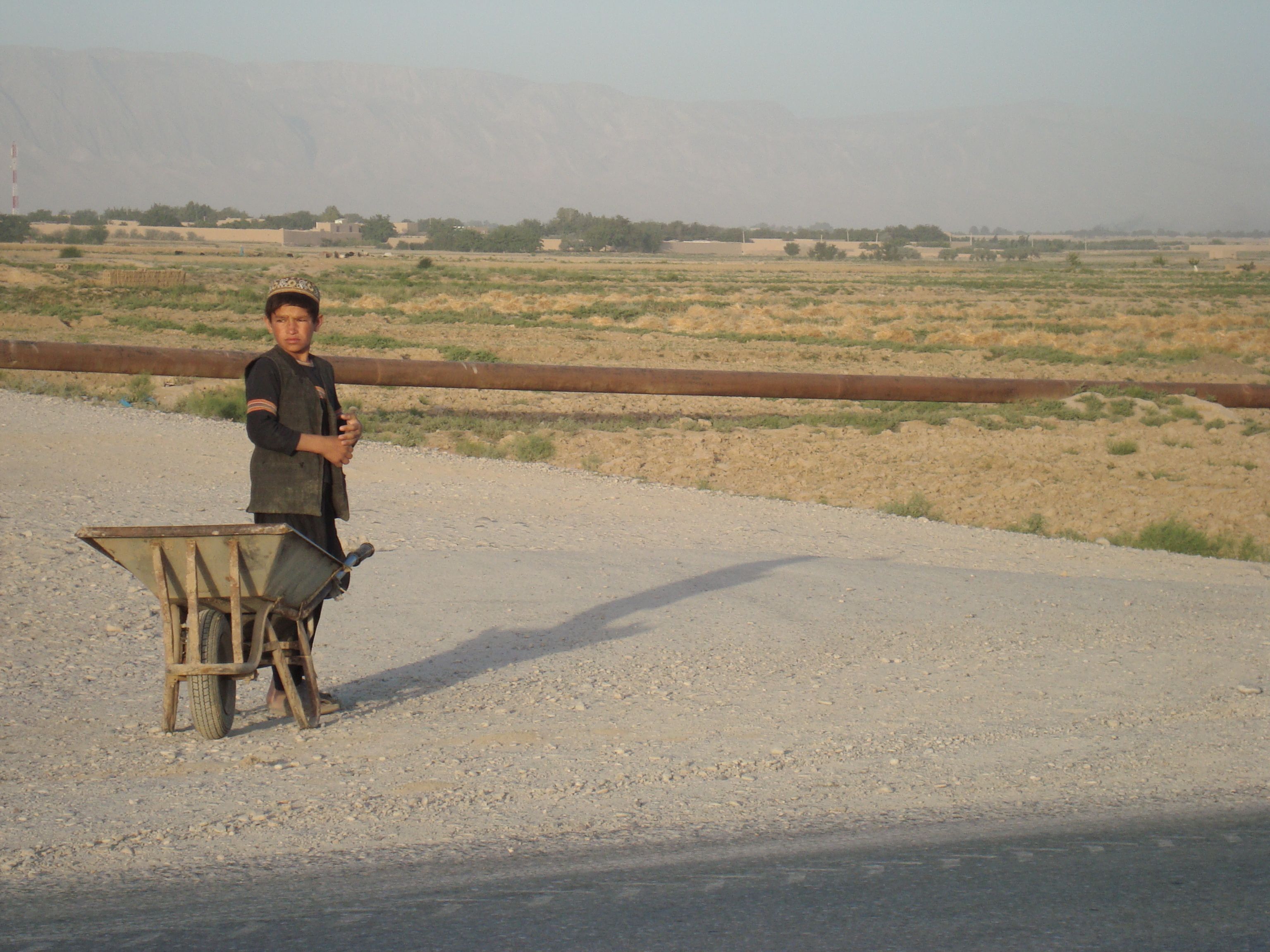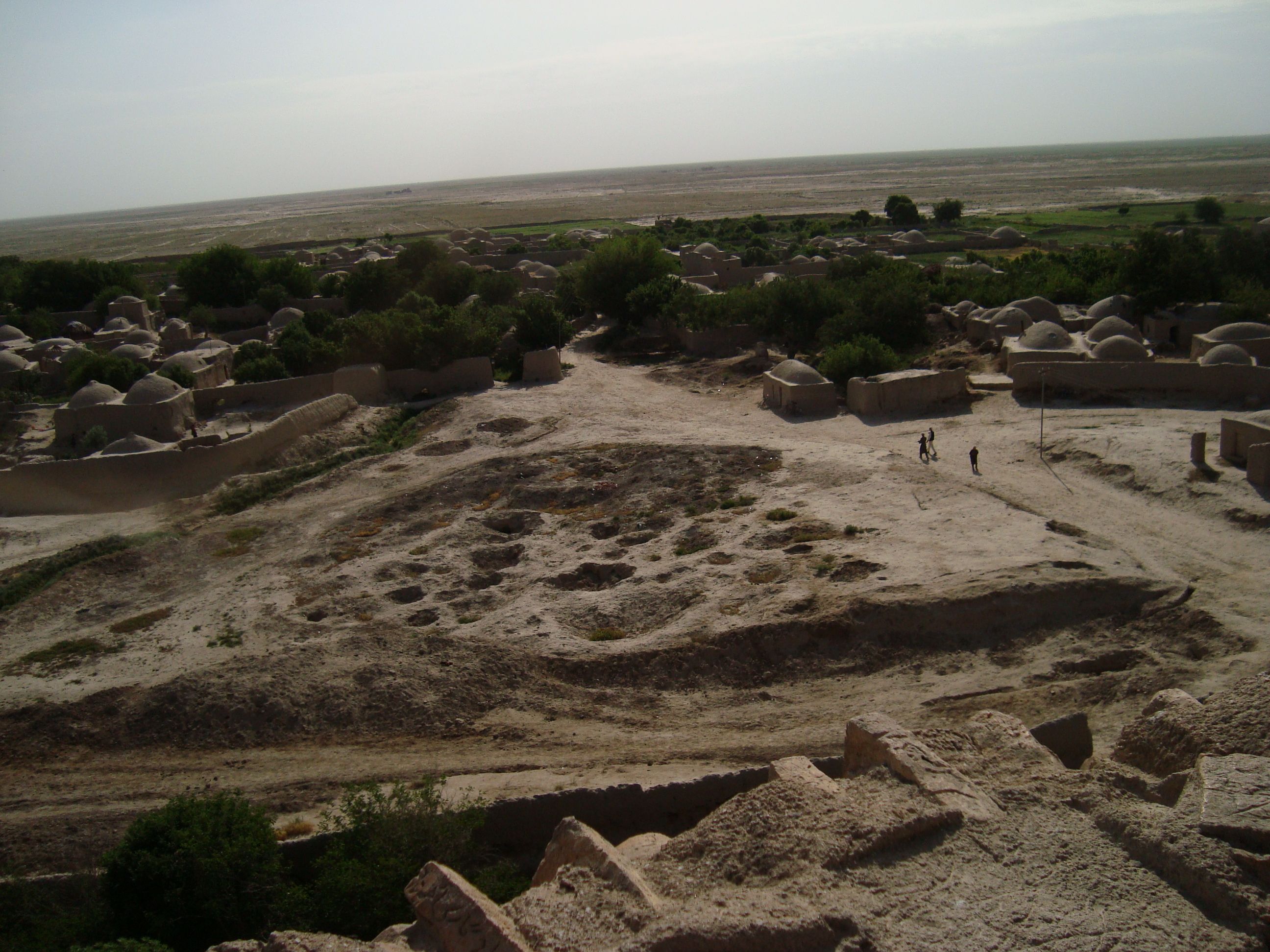One evening in late May, a dozen Taliban motorcycle riders rumbled into Zadyan, an oasis of apricot and mulberry groves on the Bactrian plains. The riders wore scarves over their faces and carried Kalashnikov assault rifles over their shoulders. They gathered Zadyan's elders in a clearing between a 12th-century minaret and a vaulted shrine, which is believed to cure the paralysed and mentally ill. From now on, the rebels announced, the Taliban would govern the village, which in any event had never been patrolled by either Afghan or Nato security forces. The elders - ethnic Turkmen mostly unarmed and demoralised by the second consecutive year of a brutal drought - acquiesced.
Greek cavalry bled upon the desert surrounding Zadyan, Mongol hordes carpeted it with war dead and Afghan guerrillas armed with long-barrelled jezail matchlocks scaled British forts here. Soviet tanks struck fear along Zadyan's clay streets, and American air raids have gouged craters out of the wheat fields that curve northward from the Hindu Kush.
By comparison, the Taliban's spring offensive, the latest in the nearly unceasing conquests of northern Afghanistan, is far less dramatic. But it is no less effective. By June 1, a month after insurgents announced their annual push to wrest the country from Nato's occupation and the government's kleptocracy, Zadyan and most nearby villages, free of rebels just a month before, were under Taliban control.
Given how rapidly Afghanistan's northern hinterlands are falling into the hands of the insurgency, the debate in Washington about how and when to draw down American troops, while preserving the security gains that US officials claim have taken place in Afghanistan in recent months, seems so disconnected from reality it is almost surreal.
Even a year ago, when northern Afghanistan - and especially Zadyan's own Balkh province - was still believed to be the safest part of the country, the world paid little attention to such villages. As a result, few here have felt the benefit of the billions of international aid dollars that have poured into the country in the decade since the US-led invasion. The promises of potable water, education, health care and decent roads for farmers to take their goods to market remain unfulfilled.
Passed over by the aid intended to improve their life, the villagers eke out the existence their forefathers did in the same privation that has afflicted their land since the beginning of recorded history. They tend their orchards and fields by hand with wooden tools; there is no sanitation or electricity. No surprise, then, that the swift and quiet takeover of villages dismissed by most outsiders as marginal went largely unnoticed by the news cycle, unheeded by politicians in Kabul and Washington.
I am researching a book in these villages. Three things are plentiful: fine dust that seems to anchor every hand-slapped cob house tighter to the desert; pride in the capricious and gorgeous land that is the villagers' main source of livelihood; and the sense of abandonment. As in most of Afghanistan, where the government is pretty much confined to Kabul and provincial and district capitals, the villages are generally left to their own devices. There are no government offices to help the indigent, no hospitals to treat the sick. The meagre police force that is supposed to patrol the narrow, meandering streets simply has no means of reaching them; the nearest police station to Zadyan is in Dawlatabad, a grimy district centre 25 kilometres away, where 48 police officers mope in the shade of mulberry trees. At their disposal the policemen have two trucks, one of which is perpetually broken, and the other typically in use by the police chief, a barrel of a man who likes to spend his time in Mazar-e-Sharif, the provincial capital an hour's drive away.
"It's all the government's fault," the deputy police chief, Captain Mohammad Rahim, told me over a recent lunch of bitter, unripe apricots. "I don't understand why the government isn't paying attention."
The insurgents are capitalising on this power and security vacuum - and on the centuries-old ethnic divides that carve the northern countryside into a volatile jigsaw puzzle. The Taliban are mostly ethnic Pashtuns, whose presence in the region is the product of a 120-year-old state-sanctioned ethnic cleansing of Uzbeks and Hazaras by the Afghan king Abdur Rahman, who forcibly settled 10,000 Pashtun families north of the Hindu Kush in the 1890s. Most of today's insurgents in Balkh hail from Pashtun settlements that date back to that compulsory migration that triggered a century of on-again, off-again reprisal massacres by all three ethnic groups. Most recently, after the Pashtun-led, Taliban government collapsed in 2001, Hazara and Uzbek gunmen swept through Balkh's Pashtun villages, raping the women and slaughtering the men. Fear of ethnic violence is one of the reasons some Pashtuns in the region embrace the militia's return.
Another reason is financial: The Taliban pay their foot soldiers, sometimes as much as $300 (Dh1,100) a month, more than the salary of police officers under Captain Rahim's command. "There are no jobs," said Abdul Majid Khan Ansari, an imam at the Blue Mosque in Mazar-e-Sharif. "Their last resort is to join the Taliban. When a family is hungry their son joins the Taliban for money."
What will happen here next? Before I left this month, my friends in Balkh asked me this question again and again. They were hoping, I think, for some answer other than the one we all knew. If Nato troops come to root out the Taliban, there will be blood, some of it probably civilian. If they don't, there will be severe Sharia justice, subdued weddings without music, a 10 per cent tithe to be scraped together in withering orchards and among tottering herds of malnourished livestock, in fields of wheat that this droughty year barely reaches up to the farmers' knees. "Either way," a friend in one of the villages told me, "life will be very hard."



